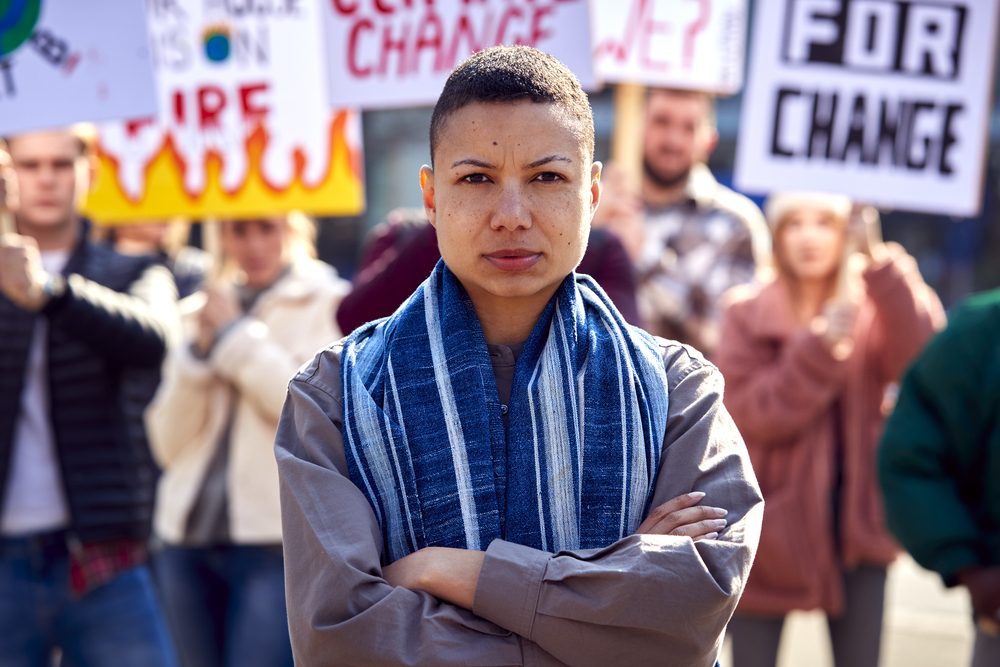At a time when the ideals of democracy are being challenged and co-opted by authoritarian forces, there is increasingly a need for a form of psychology that goes beyond adapting individuals to existing societal norms and, instead, questions and challenges those norms. In a new article, Nick Malherbe, a distinguished scholar from the Institute for Social and Health Sciences at the University of South Africa, delves into the role of critical psychology in reimagining and reinforcing the foundations of radical democracy.
According to Malherbe, Critical psychology can play a significant role in supporting radical democracy. Traditional psychology often pathologizes resistance to capitalist norms or adapts individuals to fit within these norms. In contrast, critical psychology can empower individuals and communities to challenge these norms and support the development of a more equitable and democratic society.
“As we have seen, mainstream psychology has played a role in capitalism’s imperial, extractive, and exploitative global project, a project that, in much of the world, operates under the sign of democracy. Critical psychology has, however, been used in efforts to resist capitalist democracy,” he writes.
“Those who practice radical democracy are rightly suspicious of psychology—purportedly critical psychology and otherwise—not only because of the discipline’s affiliation with capitalist institutions but also because so much of psychology has, throughout history, pathologized a range of anticapitalist struggles, seeking to render these struggles products of a maladaptive psyche that must be cured through a closer alignment with the values of capitalist democracy.”
His work argues for a redefinition of democracy, moving away from a term often hijacked by neoliberal and autocratic agendas towards a concept of radical democracy – an ongoing, grassroots effort to wrestle democracy back from the clutches of authoritarianism. In this vision, democracy is not a static endpoint but a dynamic process of continuous struggle and reinvention, intimately tied to the psychological underpinnings of society and individual subjectivities.
 Malherbe explores the role of critical psychology in supporting and enhancing radical democracy, contrasting it with mainstream psychology’s historical alignment with capitalist agendas. Critical psychology, unlike its mainstream counterpart, has been actively involved in resisting oppressive systems, such as those seen in US-backed dictatorships in Latin America, apartheid South Africa, and occupied Palestine. This branch of psychology has also spoken out against the discipline’s involvement in torture, racism, and ecological damage.
Malherbe explores the role of critical psychology in supporting and enhancing radical democracy, contrasting it with mainstream psychology’s historical alignment with capitalist agendas. Critical psychology, unlike its mainstream counterpart, has been actively involved in resisting oppressive systems, such as those seen in US-backed dictatorships in Latin America, apartheid South Africa, and occupied Palestine. This branch of psychology has also spoken out against the discipline’s involvement in torture, racism, and ecological damage.
Critical psychologists, therefore, should not impose their expertise onto these movements but should be invited to contribute in ways that align with these groups’ collective values and goals. Their role isn’t to dominate but to assist and be accountable to the needs of the movements they serve.
Malherbe argues that critical psychology can contribute to radical democracy in two main ways: by advancing a politics of desire, which involves understanding and nurturing the emotional and aspirational aspects of political activism, and by helping to build everyday democratic practices, thus ensuring that the principles of radical democracy are woven into the fabric of daily interactions and structures.
For Malherbe, radical democracy isn’t about settling into a rigid system but constantly negotiating and redefining goals and strategies to align with the group’s evolving aspirations and needs. Critical psychologists have a unique role in this context. Rather than imposing their perspectives, they should work democratically within radical movements, respecting and adapting to their values and needs. This involvement includes addressing the complex psychological aspects of political activism, such as dealing with conflicts, isolation, and the strain of continuous struggle. In radical democracy, desires are not static but are a driving force for change and emancipation. People’s identities and subjectivities are shaped through their involvement in these movements, constantly evolving as they engage with different struggles.
Malherbe also highlights that radical democracy extends beyond formal politics into everyday life, shaping how communities function and interact on a day-to-day basis. Critical psychologists can support these endeavors by using their resources and expertise to bolster democratic practices in everyday settings. This might involve confronting capitalist structures or supporting the development of democratic practices in local communities. The aim is to democratize psychology itself, making it responsive to the needs of these communities and contributing to creating a society based on egalitarian principles and collective well-being.
In his conclusion Malherbe suggests that there are many untapped areas where critical psychology could contribute to the strengthening of radical democracy. These include working within neglected communities, holding political entities accountable to democratic principles, managing democracy in cooperative work environments, addressing gender disparities, and rethinking how psychology is taught and applied to support democratic practices. The overarching goal is to reorient psychology away from serving capitalist agendas and towards supporting a more inclusive, participatory, and equitable form of democracy.
****
Malherbe, N. (2023). Psychology and the question of radical democracy. Theory & Psychology, 33(6), 771-791. https://doi.org/10.1177/09593543231190605 (Link)















Maybe start closer to home, like launching a campaign to get psychologists to reject the DSM, and to stop pathologizing their patients with DSM based talk. Stop funneling patients to psychiatrists; stop saying to patients, “I won’t work with you unless you’re medicated.”. Or, “Medication will allow you to be present and emotionally capable of talk therapy. Now go get medicated.”. If you want to be bold, disavow psychiatry.
Report comment
This comes across as grandiose. Maybe put your own house in order before trying to save the world. Address the authoritarianism and fascism and corruption in the mental health system.
Report comment
Agree
Report comment
I’m very disappointed that Mad In America has become so one sided politically. All ideology leads to totalitarianism, and the preaching of DEI (Division, Exclusion, Indoctrination) is just such a radical ideology. I wrote articles for MIA before it’s complete left wing takeover, and I doubt any of my submissions would be accepted today. It does bear mentioning that polling shows that the general public is not on board with radical gender theory. A better goal of critical psychology is not to be involved in partisan debates, and to point out that the left wing takeover of the mental health professions is nearly complete, with ASCA (The American School Counselors Association) driving gender “transitions” and keeping them secret from parents. Anyone reading this should know that you can opt your children out of being alone with one of these activists with a form at “Courage Is A Habit”. The last thing I want to say is that we do not need “social justice warriors”. The US Constitution is the world’s ultimate document on social justice. Forgive me if I doubt many of today’s “social justice activists” are familiar with it.
Report comment